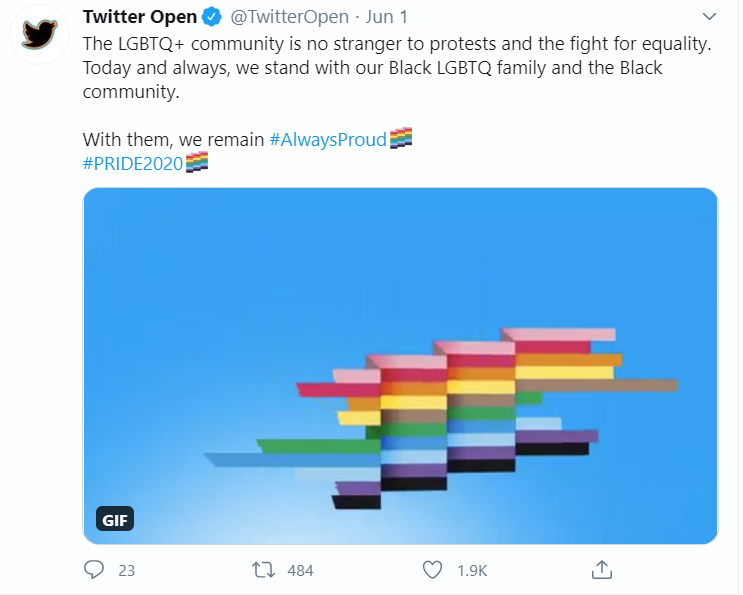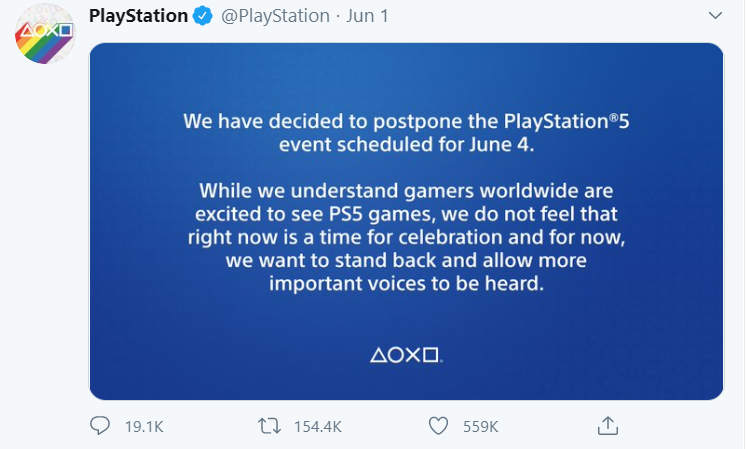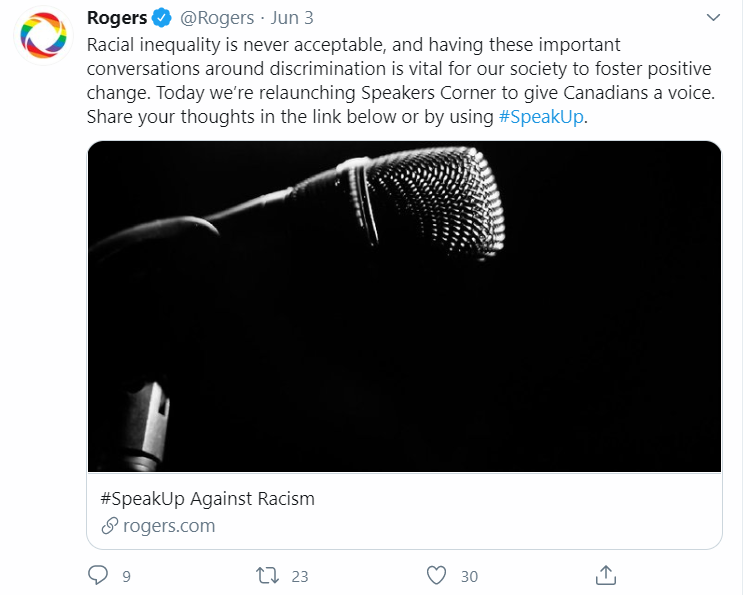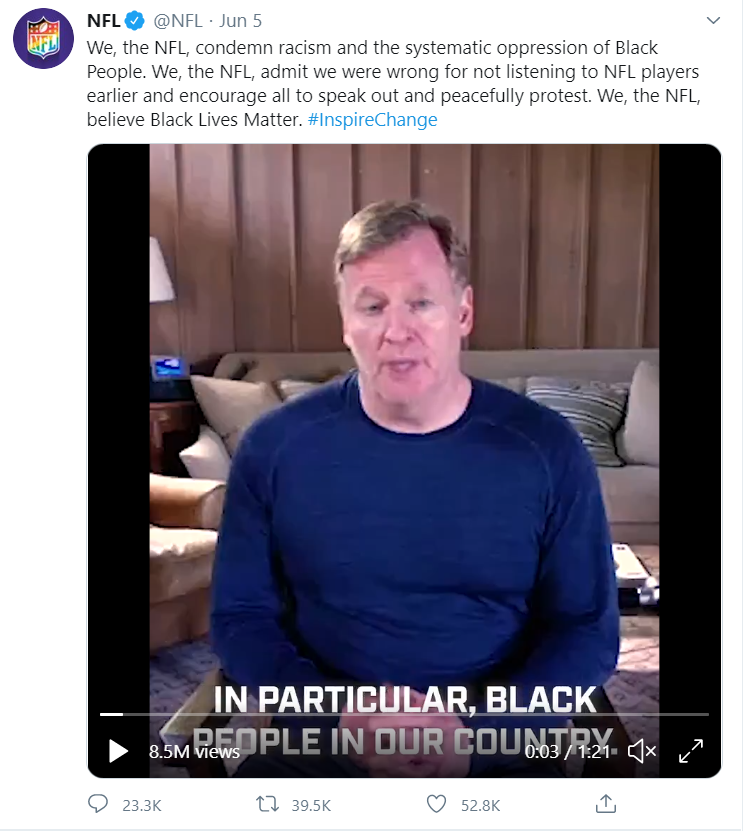[Series] Social responsibility amidst recovery: Pride
In this series, our analysts discuss how brands are addressing and practicing social responsibility amidst recovery during the COVID-19 pandemic. This week, as the COVID-19 pandemic, Black Lives Matter movement, and Pride Month intersect, the call for intersectionality—seeking unity without uniformity—is stronger than ever.
Allyship
Twitter was one of the few companies to speak to the intersection of BLM with other issues. Twitter’s awareness about the links between COVID-19 and BLM, as well as BLM and Pride, is noteworthy.
Citi swapped “this unprecedented time” for “these extraordinarily difficult times.” Citi’s email responses to COVID-19 and BLM were visually indistinguishable. The language was similar too: Toward the top of these emails, Citi said it “wanted to reach out” to customers. It also emphasized safety in both messages. For COVID-19, that meant “augment[ing] daily cleaning procedures”; for BLM, it meant “putting in place heightened security protocols.”The similarity in messages made it seem, almost, that the two concerns were interchangeable.
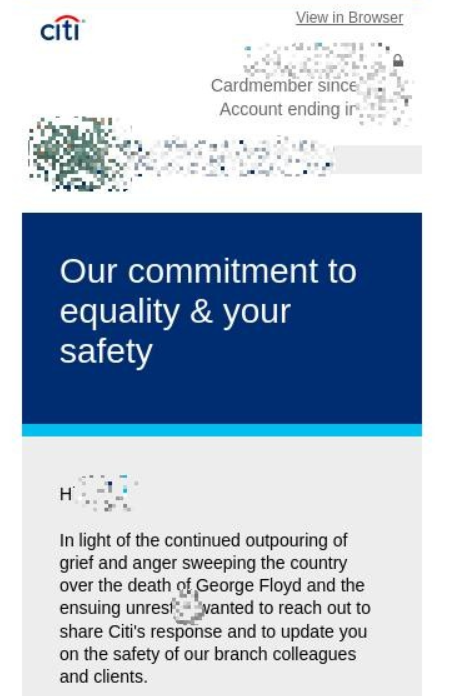
Similarly, Verizon nixed its Pride campaign in favor of one responding to BLM. In doing so, Verizon implicitly suggested the two movements can’t coexist.
Only a handful of financial services brands addressed the BLM movement directly in email. PC Financial, Marcus, and Chime led with BLM in email subject lines and addressed how they’re committed to creating change.
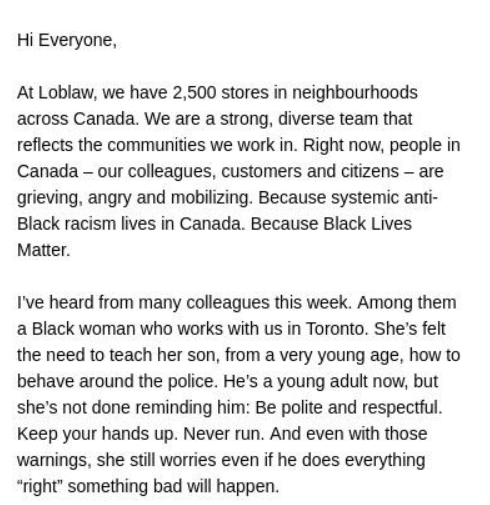
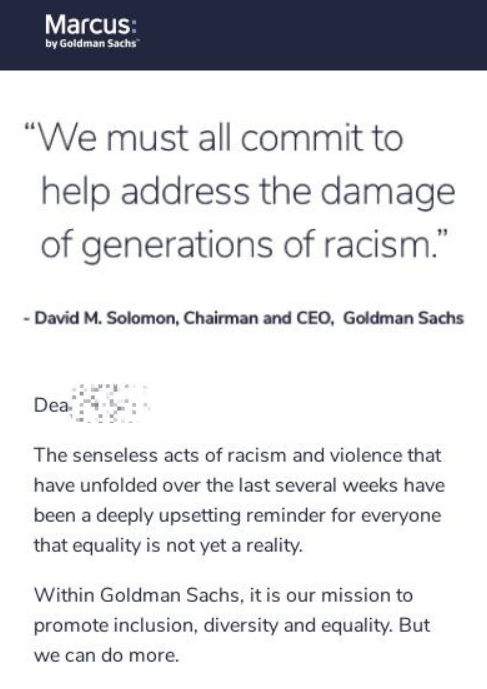
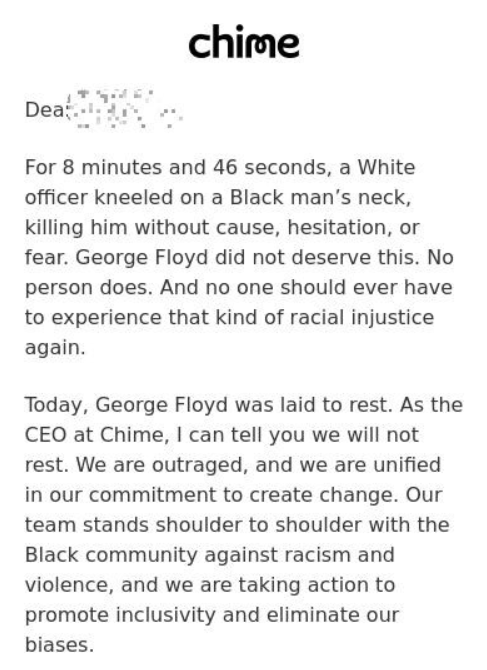
Impact
Words are powerful, but action is impactful. Brands are using their platforms to support the cause and amplify voices. In times of social and civil unrest, brands must read the room and take action accordingly. Brands like Wendy’s and PlayStation postponed planned brand events that could be deemed insensitive given the current climate.
For brands seemingly outside of the scope of anti-police-brutality protests, it takes tangible action to make platitudes meaningful. Racism isn’t just limited to the US, of course, but with the current movement centered on US police forces, non-US companies spoke to the problem in tangible ways, including Canadian communications and media giant Rogers.
Accountability
When brands make their goals public, they must hold themselves accountable. By doing so, they increase the likelihood of achieving them. Consumers are holding companies accountable too, as they look to support BLM with their wallets.
On social media, people are encouraging consumers to shop at Lowe’s over Home Depot in response to the chains’ political affiliations: The co-founder of Home Depot has donated to the Trump campaign, while Lowe’s donated $25M to help minority-owned businesses reopen, and its founder is one of the few Black CEOs of a Fortune 500 company.
There were over 750k mentions of Lowe’s and The Home Depot from June 1-June 9, averaging a negative sentiment of 63%, according to Comperemedia/Infegy data.
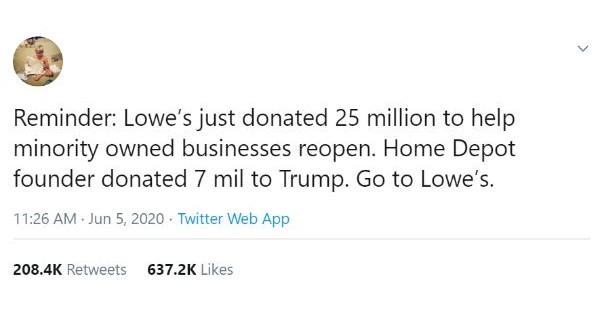
For many brands, true accountability means acknowledging and righting past wrongs. While the NFL has released several statements and is actively highlighting individual team and player statements, many are calling out the NFL for being disingenuous. NFL commissioner Roger Goodell admitted that the league was wrong for “not listening to NFL players earlier” and that they “encourage all to speak out and peacefully protest,” but his 81-second video didn’t mention former 49ers quarterback Colin Kaepernick.
Brands are also being called on to show true equity and release the number of Black employees they have in their organizations. Pull Up For Change is a digital campaign that challenged beauty brands who have released a statement of public support for Black Lives Matter to publicly release the number of Black employees they have in their organizations at corporate level/leadership roles. ULTA reported 18% Black board members and 13% Black executive team leaders, while Sephora reported 45% people of color in corporate offices, including 6% who are Black employees.
What we think
As we enter the “next normal,” brands must reassess what allyship, impact, and accountability look like. As stated in a recent Mintel blog post, “new” is static, “next” is always looking forward. Brands cannot afford to remain in a reactive state, there are many more “next normals” that will challenge how brands and consumers think about corporate social responsibility and brand ethics.
- Allyship: Being an ally is a long-term commitment, and with solidarity, there must be self-awareness. Brands must expect and be prepared to be called out.
- Impact: Taking action comes in many forms, including monetary donations, amplification, and advocacy. Social impact requires not just one but many actions.
- Accountability: Communicating the effects of actions is just as important as communicating the mission. Brands must hold themselves accountable.
Marketers should expect criticism, whether for speaking up or remaining silent. So, whether brands want to speak up or reserve the right to remain silent, do so out of conviction and not due to fear of criticism.
